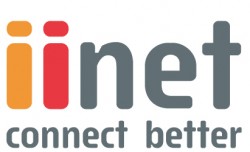Weekly News Roundup (29 June 2014)
Brazil vs Germany. Netherlands vs Argentina. Barring no surprise, this is how the semi-finals of the World Cup would line-up, based on my predictions. And then, it could be anyone’s cup, depending on a piece of magic, luck and the ref. The team that has the most hunger for the trophy, and I don’t mean the “I’ll bite that Italian defender, he looks tasty” kind, will win it!
Starting in 3, 2, 1 …
![]()
We start with this week’s big copyright news, and legally speaking, it doesn’t get any bigger than a US Supreme Court decision which could have a ripple effect on just how copyright law is interpreted. Aereo has lost its case, brought to the Supreme Court’s attention by a conglomerate of TV broadcasters.
To sum up what Aereo is, basically, they’re a company that offered the online recording and streaming of TV broadcasts, for a monthly fee. The company tried to circumvent the need to license any content and pay re-broadcasting fees by reserving a tiny TV antenna for each subscriber, thus eliminating the “broad” in “broadcasting”. As users have the right to time and format shift TV broadcasts, Aereo used this to argue that they did not need a license for the streamed and stored content, as they were simply helping their customers exercise their rights by renting them tiny antennas.
If Aereo’s business model sounded too much like a gimmick, a loophole, then it appears you agree with the Supreme Court, who ruled this week 6-3 in favor of the TV broadcasters. Their opinion was basically that Aereo’s business model was similar to ones proposed by cable companies decades ago, in which they also tried to circumvent the need to pay licensing fees by using their own antenna systems. The court said that the Copyright Act of 1976 already refutes Aereo’s arguments.
The dissenting opinion did align itself with Aereo’s argument that, since each antenna was only used by a single subscriber, no re-broadcasting has actually occurred. Narrowcasting, maybe, but not broadcasting.
This probably means the end of Aereo, unless they can come to some agreement with the TV broadcasters – they’re not really in the best of positions to negotiate, you have to agree.
In another Supreme Court move, but this time in the Netherlands, anti-piracy agency BREIN has taken their Pirate Bay blocking case there to settle the matter once and for all. The lower courts have sided with ISPs and ruled that blocking The Pirate Bay is a big no-no, but BREIN, having spent a huge chunk of money already, wasn’t willing to just let it go. The Supreme Court will now have to decide whether the legal criteria applied by the lower courts was sufficient, or perhaps even order a new trial.
——
The MPAA wants more “unbiased” research on the issues of piracy, research whose topics they will determine, whose methodologies and directions they will choose, and whose funding they will provide. Yep, totally unbiased. It’s just like when research showed that movie box office took a hit following the shutdown of Megaupload, due to the reduced word of mouth effect that is a positive effect of piracy. The MPAA quickly produced their own research which showed the exact opposite.
With companies like Google, Netflix and Spotify all funding their own research to support their positions on everything from piracy to revenue sharing, the war of research papers will set to continue between them and the likes of the RIAA and MPAA. The truth is that, without proper parameters, you can obtain research results that supports pretty much any position you want, and when you’re also paying the researchers, it’s hardly the formula to obtain independent and unbiased data. Instead, it’s nothing more than just another propaganda tool, designed to fool those that don’t want to hear different in the first place.
It’s this kind of head-in-sand attitude that, I think, makes rights holders so fervent and righteous in their copyright crusade. Making them feel that what they are doing, even if it is against the interests of their own customers, their own industry and their very own futures, absolutely right. They are also “content control freaks”, a term that has been coined this week by one of Australia’s largest ISPs iiNet in relation to efforts by rights holders to introduce harsher copyright laws here. Rights holder, so paranoid about the threat of piracy, so coddled and protected by the political elite and so disrespectful of their own customers (preferring to think of them as “potential pirates”), have done some really crazy things, when you think about it, in relation to controlling how their content is consumed. I mean, McDonald’s don’t tell you how to eat a Big Mac, and then penalize you for “doing it wrong”. But Sony and Fox, and EA and Activision, and Warner Music and EMI can. And will.
Never mind that domain blocking and three-strikes have not work anywhere in the world where they have been implemented (unless you believe the “unbiased” research, paid-for and designed by the RIAA/MPAA), and yet, that’s exactly what rights holders are pushing the pro big business government here to implement. ISPs, you have to say do have a conflicting interest in this in that they don’t want to be responsible for being the Internet police, but their arguments – which you would think governments would listen to more considering they are the experts after all – are sound and logical. You can’t put a pad-lock on the Internet, not against those that are already technically proficient at the whole piracy thing.
Worst of all, the same rights holders are pushing for geo-unblocking and VPNs to be outlawed too here, mainly because of the quarter million of households here that use something like this to access superior and good value services, like Netflix. Instead of asking themselves why people are spending money buying overseas services, usually at a greater cost than say people in the US accessing the same services (so not just a matter of freeloaders who don’t want to spend a single cent on content), all they see is “lost revenue”. The extra money that, they believe, people will pay for overpriced, lower quality, less convenient local services if the overseas options are blocked – all because there’s less competition here to force content holders to provide more competitive pricing. It’s an artificial constraint on trade, says iiNet, something that should not be allowed under the free trade agreement between Australia and the US.
In conclusion, iiNet opines “Years of ranting against piracy – while ignoring customer feedback – have got rights holders nowhere”. It seems to me that rights holders want to, and I mean really want to, continue going nowhere, because it feels safer than going to somewhere else, a place that’s new, innovative and where their customers are already heading.
Speaking of going nowhere, the RIAA this week surpassed the 50 millionth URL mark in their DMCA removal requests to Google. I don’t have any unbiased research to back up my claims, but I reckon far more than 50 million music piracy related URLs were created in the same time, most of it as a result of the removal of the old URL.
The MPAA also tried something this week too with their DMCA request, by trying to remove an entire subreddit from Google. The r/fulllengthfilms was one of the URLs that the MPAA asked Google to remove this week, something that Google has not yet taken action on. A new war on Reddit? This could be interesting.
![]()
Not much in terms of gaming this week, but this article caught my eye. When Sony heard about Microsoft’s big mis-step (number two), that the Xbox One was going to be $100 dearer than the PS4, everyone in the Sony camp was “dancing in the aisles and high-fiving”. I bet they were.
The mood must have been equally as good when they first heard Microsoft’s disastrous DRM plan, and then some more celebratory antics when the inevitable back-track occurred. All Sony had to do was to not make any big mistakes and they would have been head, but to their credit, they did release a console that did all the necessary things right (even if, perhaps, it wasn’t as revolutionary as it could have been).
—–
My mood is a bit less than celebratory. More sleepy and slightly annoyed. The World Cup, as hard as I tried to ignore it, has been hard to ignore and two live matches in the last week starting at 2 a.m. was just too much for me. In my younger days, I would easily be able to get up at 4 a.m., watch the match, and continue with the rest of the day, fatigued but still capable. The worrying thing is that these so called younger days were only two years ago!
See you next week.



